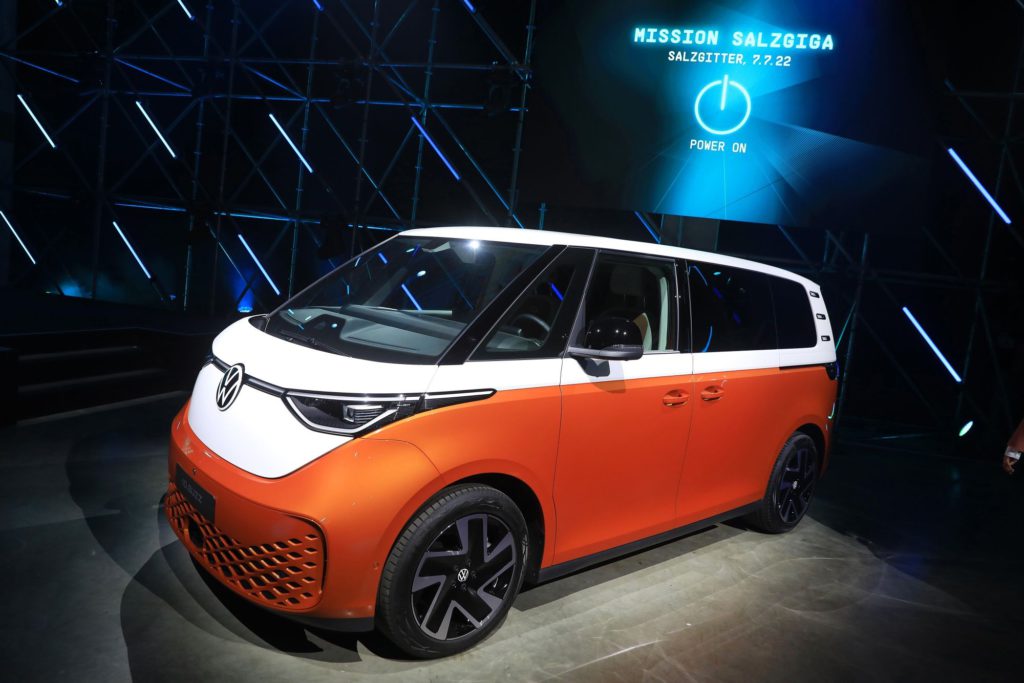(Bloomberg) — As Europe edges toward a full-blown energy crisis and recession, its manufacturing giants are raking in the cash.
Luxury-car leader Mercedes-Benz joined Europe’s biggest chemicals maker BASF, Swiss building-materials producer Holcim, shipping company Hapag-Lloyd and others to report a jump in profit and raise earnings forecasts for the year.
Even as energy and raw materials costs soar and inflation drags on the economic outlook, carmakers Volkswagen and Stellantis beat profit expectations and said order books are brimming with demand for their models.
The results offer a stark contrast to the wave of grim economic news sweeping across Europe as Russia continues to choke the continent’s gas supply, fueling inflation and threatening production. Manufacturers sounded a common theme: demand for their cars, chemicals and industrial materials has remained strong despite plummeting leading indicators like business and consumer confidence.
So far, they’ve been able to pass along the higher costs of production to their customers. But with inflation setting a record pace and interest rates rising, it isn’t clear how long that dynamic will hold.
“The situation seems paradoxical: high profits combined with high uncertainty and rising costs,” said Klaus Wohlrabe, head of economic surveys at the Ifo Institute in Munich, adding that he doubted the situation would last. “People will start saving instead of going on vacation or buying a new car and the gas and energy bills have to be paid first. It may be that the very good quarterly results are followed by a hangover in some cases.”
Carmakers in particular, which have only recently seen the semiconductor shortage start to ease, still won’t be able to make cars fast enough to meet customers’ purchases or quickly work down their order books. As it reported second-quarter earnings that beat analysts’ expectations, Volkswagen said Audi orders are so high that customers will have to wait as much as a year for some of its models.
“We’ve never been in a situation like that, where the output of the industry is so heavily constrained by supply,” Volkswagen Chief Financial Officer Arno Antlitz said Thursday. “Even if the demand slows down in the second half of the year, there’s still enough head room for us” based on full order books.
With Russia continuing to reduce Europe’s gas supply, strong second-quarter earnings and rosy forecasts through the end of 2022 do little to mask the threat of tough times ahead. While carmakers will feel the pain of a broad economic downturn, industrial manufacturers are facing a more immediate potential shock if there’s a gas-supply emergency.
BASF is cutting costs to prepare for an economic slowdown and is planning to reduce its gas-heavy ammonia production. It will rely on fuel oil to generate electricity and steam at its site in Schwarzheide. As the chemical maker cuts consumption, it’s also considering selling unused natural gas back to Germany’s grid, people familiar with the matter said.
French auto supplier Faurecia SE set aside $100 million to build its own “safety stock” of energy amid risks of shortages.
For carmakers, the picture is complicated. Sales in Europe have plummeted for the past year, but Mercedes, Volkswagen, BMW and others have seen profits soar by shifting production to their highest margin models as the semiconductor shortage and Covid lockdowns idled factories.
“Pricing and mix remains the key driver for the earnings” beating expectations among carmakers, said Stifel analyst Daniel Schwarz. “The key questions remain on 2023: when will supply eventually recover, and will demand and pricing hold up in a recession scenario?”
Stellantis said Thursday it now expects the wider European market to shrink 12% by the end of the year, after previously seeing only a 2% decline.
Like other major manufacturers, the positive results came with concerns about high inflation, supply-chain problems and a worsening energy supply crisis. Carmakers continue to battle a dearth of chips that has led to widespread production halts. Most manufacturers are seeing signs of the logjam easing, though they’re still far from assured to procure enough of the high-tech components.
“It’s still impressive to see car makers continuing to increase that much their price-mix even if volumes are not there,” says Ariane Hayate, a fund manager at Edmond de Rothschild Asset Management in Paris. “Results are clearly above expectations but macro uncertainty will continue to weight on this very cyclical sector.”
More stories like this are available on bloomberg.com
©2022 Bloomberg L.P.











